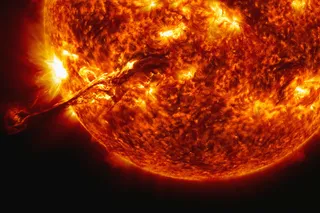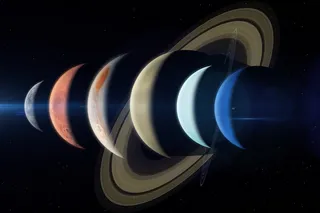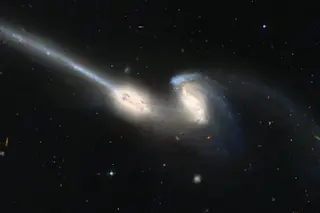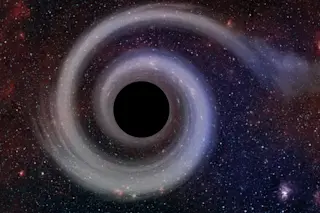Forty years ago today, Neil Armstrong made science-fiction geeks out of everyone. Without waxing too poetic, it was the moment when decades—if not centuries—of dreams about going to new worlds became a reality. With all due respect to Yuri Gagarin and Alan Shepard, Armstrong's step onto an actual extraterrestrial surface was the first real space travel, in the sense of going somewhere. For a short while, there actually was a man on the moon. Given the awesomeness of science non-fiction that year, I might almost expect it to be a down year for science fiction. Not so. 1969 had some good sci-fi—maybe not as good as landing on the moon, but damn good nonetheless. It was, for example, the year Billy Pilgrim came unstuck in time. In Slaughterhouse-Five, Kurt Vonnegut challenged the idea that sci-fi wasn't an appropriate genre for high-brow "literary-fiction" writers, tradition that has carried forward to become ...
1969 Sci-Fi: Humans Walked on the Moon, and Dreamed Still Higher
Neil Armstrong's moon landing turned everyone into science fiction geeks, sparking a golden era of exciting sci-fi literature.
More on Discover
Stay Curious
SubscribeTo The Magazine
Save up to 40% off the cover price when you subscribe to Discover magazine.
Subscribe












